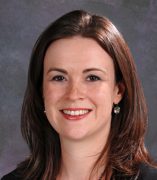
Anne M. Fink, PhD FAHA
Associate Professor & Department Head
Department of Biobehavioral Nursing Science
Bio:
Research:
My research determines how sleep deprivation and night-shift schedules change the nervous system–this work leads to strategies for improving public health and preventing workplace accidents.
Pubs
Articles: My Bibliography – NCBI
Sleep neurobiology and the critical care environment. Critical Care Nurse, 2020, 40, e1-6. https://aacnjournals.org/ccnonline/article/40/4/e1/31105/Sleep-Neurobiology-and-the-Critical-Care
Edu
Credentials:
Degree: PhD, MS (University of Illinois), BSN (Loyola University Chicago).
Licensure: RN (Registered Nurse, State of Illinois [expires 2026]).
Fellowship: FAHA (Fellow of the American Heart Association).
Teaching Certification: CNE (Certified Nurse Educator, National League for Nursing [expires 2027]).
Key
Keywords:
Autonomic neuroscience, catecholamines, circadian rhythms, hypertension, insomnia, occupational health, shift-work sleep disorder, sleep apnea, stroke, substance use disorder.